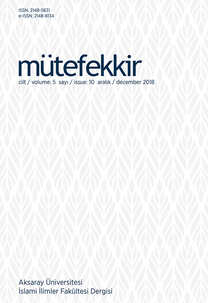ON THE DIALECTICAL MAXIM OF CRITICAL RATIONALISM
The paper discusses one of the major principles of critical rationalism with a critical approach. This principle is about giving all participants the opportunity to argue in a friendly spirit. I analyze the main theoretical and practical implications of this maxim and argue for the importance of this Popperian principle beyond scientific rationality, enabling a general rationality for co-operation among all interested parties in the argu-mentation of scientific or everyday life issues, no matter if they are our friends or oppo-nents. The conclusion is that this maxim has an inner logic with an effective result of successful dialectic argumentation and critical thinking. A parallel has been drawn be-tween Christian love for others, the Socratic insight that it is better to suffer injustice than to do it and the strategy of Popper’s principle. And hereby I suggest its compatibil-ity with Popper’s so-called via negativa.
___
Agassi, Joseph - Jarvie, Ian. A Critical Rationalist Aesthetics. Amsterdam: Rodopi, 2008.Cooper, John M. Plato: Complete Works. Indianapolis: Hackett, 1997.
Damer, T. Edward. Attacking the Faulty Reasoning: A Practical Guide to Fallacy-Free Arguments. Belmont, CA: Wadsworth Cengage Learning, 2009.
de Jong, Peter - Vroling, Maartje. “Better Safe than Sorry: Threat-Confirming Reasoning bias in Anxiety Disorders”. Emotion and Reasoning. Ed. Isabelle Blanchette. 22-43. London: Psychology Press, 2014.
Halbach, Volker. The Logic Manual. Oxford: Oxford University Press, 2010.
Hume, David. An Enquiry concerning Human Understanding. Ed. Peter Millican. Oxford: Oxford University Press, 2007.
Hume, David. A Treatise of Human Nature. Ed. L. A. Selby-Bigge. Oxford: Claren-don Press, 1960.
Jarvie, Ian. “Popper’s Philosophy and the Methodology of Social Science”. The Cambridge Companion to Popper. Ed. Jeremy Shearmus - Gabriel Stokes. 284-317. Cambridge: Cambridge University Press, 2016.
Koertge, Noretta. “The Moral Underpinnings of Popper’s Philosophy”. Rethink-ing Popper. Ed. Zuzana Parusniková - Robert S. Cohen. 323-338. Boston: Springer, 2009.
Merton, Robert King. “Priorities in Scientific Discovery”. The Sociology of Sci-ence: Theoretical and Empirical Investigations. Ed. Norman W. Storer. 286-324. Chicago: University of Chicago Press, 1973.
Miller David. “Popper and Tarski”. Popper’s Open Society After Fifty Years: The Continuing Relevance of Karl Popper. Ed. Ian Jarvie. 57-71. London: Routledge, 1999.
Morse, Kira G. “Debate: A Tool for Language Learning”. Journal of Border Educa-tional Research 10 (2011): 108-119.
Newton-Smith, William Herbert. “Popper, Science and Rationality”. Karl Popper: Philosophy and Problems. Ed. Anthony O’Hear. 13-30. Cambridge: Cam-bridge University Press, 1995.
Popper, Karl. Open Society and Its Enemies. Vol. 2. London: Routledge, 1947.
Popper, Karl. Auf der Suche nach einer besseren Welt: Vorträge und Aufsätze aus dreißig Jahren. München: Piper, 1999.
Solomon, Robert C. “The Logic of Emotion”. Noûs 11/1 (1977): 41-49.
van Eemeren, Frans H. - Rob Grootendorst. A Systematic Theory of Argumenta-tion: The Pragma-Dialectical Approach. Cambridge: Cambridge University Press, 2004.
- ISSN: 2148-5631
- Yayın Aralığı: Yılda 2 Sayı
- Başlangıç: 2014
- Yayıncı: Aksaray Üniversitesi İslami İlimler Fakültesi
Sayıdaki Diğer Makaleler
Menâr Ekolünün Hz. Îsâ’nın Refʿi ve Nüzûlü Hakkında Referans Kabul Edilen Ayetlere Yaklaşımı
HZ. PEYGAMBER’İN ZENGİNLİĞE YAKLAŞIMI VE ZENGİNLERLE OLAN İLİŞKİLERİ
Tefsir İlmi, Müfessirler ve Tefsir Eserleri Hakkında Yazılmış Bazı Şiirlere Dair İnceleme
KLASİK DÖNEM BAZI ARAP ŞİİRİNDEKİ KELÂM MUHTEVİYATI
ON THE DIALECTICAL MAXIM OF CRITICAL RATIONALISM
MENÂR EKOLÜNÜN HZ. ÎSÂ’NIN REFʿİ VE NÜZÛLÜ HAKKINDA REFERANS KABUL EDİLEN AYETLERE YAKLAŞIMI
